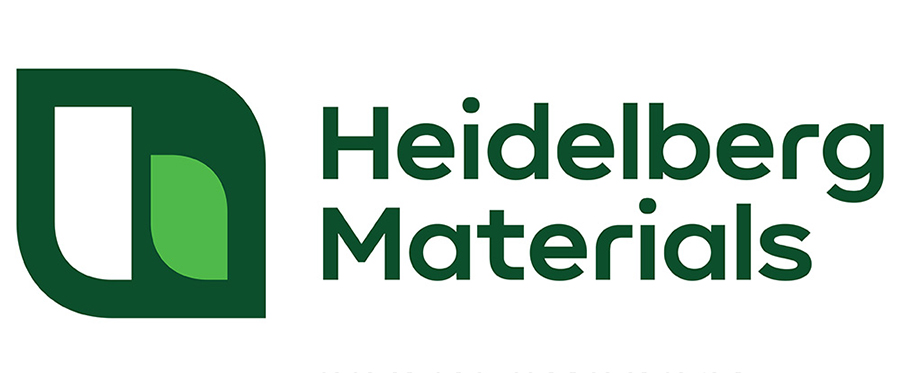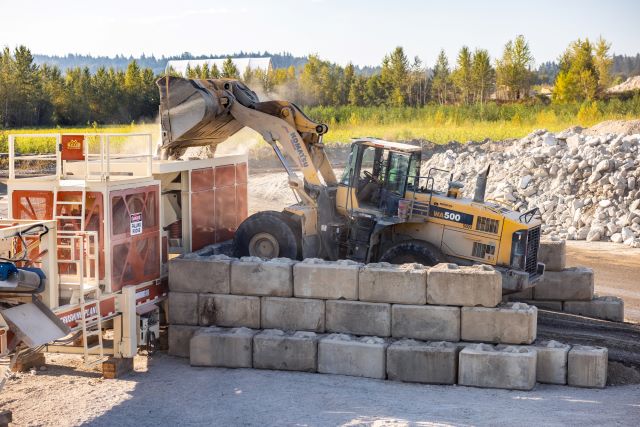Heidelberg Materials North America has expanded our portfolio beyond cement and virgin aggregates with the introduction of RevolveTM recycled concrete aggregates. But we are taking our involvement one step further, assigning specialists within our company to partner directly with departments of transportation and other agencies so that team-wide knowledge and engineering capacity can be developed.
As early as 2016, the state of Washington passed legislation encouraging the use of recycled concrete aggregate (RCA) in the state’s roadways. Both the Washington Department of Transportation (WSDOT) and the City of Seattle followed this lead by establishing goals for the use of RCA in their standard specifications. The City of Seattle now allows up to 30% replacement of coarse aggregate using RCA in concrete paving, and WSDOT’s specification recently increased the allowable RCA for use as coarse aggregate for concrete pavement to 100%. Therefore, research and development on paving mix designs is underway. The performance of recycled aggregate must meet the same standards as virgin aggregate, and to ensure performance metrics are met, DOT personnel must work with partners like us in the supply chain who are able to ensure quality control on the front end of projects.
“At Heidelberg Materials, we’re starting with 30% RCA as a baseline test for the City of Seattle,” said Sterling Frye, Senior Area Production Manager, Northern Washington Recycle, Heidelberg Materials. “Using RCA such as our RevolveTM line of products to make concrete mixes for paving is a fairly new thing for the industry overall, and at Heidelberg Materials we began laboratory testing of our paving application mix in 2023. We plan to roll out incremental increases of 10-to-20% on a month-to-month basis, until we have fully tested and are comfortable with RCA at 100% levels.”
Heidelberg Materials’ Pacific Northwest roll-out plan follows the successful procedure established in 2020 when testing general purpose mixes used for foundations, stem walls and interior slab on grade. Currently, our general purpose mixes incorporate 50% RCA, replacing virgin coarse aggregates. Mixes for paving applications will have to meet more stringent requirements for high, early strength as well as have air entrainment to resist freeze-thaw and prove durable for exposure to weathering.
To meet both City of Seattle and WSDOT specifications, we test for compressive and flexural strength and air content. In addition to laboratory testing, “truck trials or test pours are often important for paving applications, partly because they are labor-saving. Lab tests are conducted on small batches and are very manual, whereas a test slab can pour a truck load up to 10 cubic yards. An important factor in a test pour is that the contractor will use the actual tools he plans to use in the field on his jobsite, enabling him to get real world results with the current conditions of temperature and humidity,” said Frye.
We also saw an opportunity to partner with other companies that have demonstrated expertise in concrete rubble, such as Ascendent Demolition LLC of Puyallup, Washington—a company that has been in the concrete demolition business since 2001. With bridges and buildings representing a known source of high strength concrete, Ascendent is able to support the production of RCA for concrete and regularly meet the coarse aggregate performance requirements for reuse in concrete per WSDOT and City of Seattle alike.
Ascendent is currently responsible for demolition at several sites in the Greater Seattle Area, including for WSDOT’s multi-year project to widen Interstate 405 between Renton and Bellevue. Demolition materials resulting from five upcoming projects will be taken to Heidelberg Materials’ Redmond Recycle plant to be reused as RCA in concrete mixtures. Structures that will contribute demolition materials for recycling include:
- The remaining portion of the May Creek Bridge in Renton, Washington, which is part of the I-405 widening project. 1800 tons of concrete bridge demolition material will be turned into RCA for fresh concrete.
- The Lake Washington Boulevard overpass, part of a City of Seattle renovation project, which will contribute 1300 tons of post-demolition material.
- The Lind Avenue bridge on I-405, which is being partially replaced due to vehicle accident damage and will contribute 1000 tons of post-demolition material.
- The Northeast 85th Street Interchange in Kirkland, Washington. Phase 1 demolition of collector lanes will contribute 3000 tons of post-demolition material and Phase 2 (located on the I-405 mainline, to be conducted in 2025) will contribute 6000 tons.
- An unused ramp in Seattle’s Washington Park Arboretum, scheduled for demolition in early 2024, will yield 7500 tons of post-demolition material.
We believe that broadening our role—moving beyond development and production of recycled materials and working at the project level—will effectively further the use and specification of recycled concrete. Project successes across the U.S. are bearing this out.
Watch our news for the second installment of our series, which features the use of recycled concrete aggregates in Georgia.


